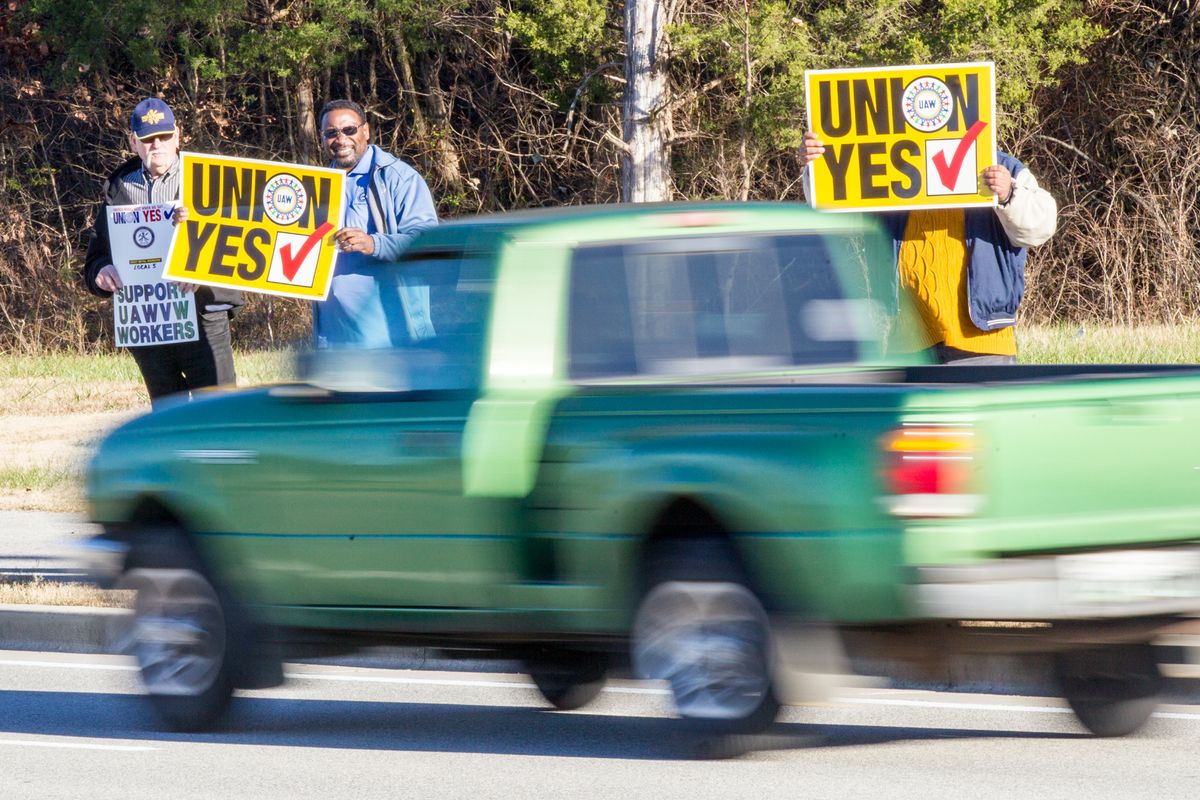Florida Republicans are pushing a bill designed to deal the state’s unions a death blow. House Bill 25, which was introduced by Longwood state Rep. Scott Plakon, would decertify any union in which 50 percent of the workers don’t pay dues, thus preventing them from being able to collectively bargain. Despite the fact that unions negotiate for the benefit of all their workers, no employee is forced to pay dues in Florida, because it’s a “Right to Work” state.
Right to Work policies are purposely constructed to reduce the resources of organized labor, as many workers realize they can benefit from their union’s collective bargaining efforts without giving them any money. In practice, HB25 largely targets unions that lean left, exempting the few worker organizations that typically back the GOP: firefighter, police and corrections unions.
This same exact move was just attempted by state Republicans. HB11 was the effectively the same bill, but it died during the 2017 legislative session in May. “This is divide and conquer … It’s an outright attack on labor unions,” Democratic Rep. Wengay Newton said at the time. “The right to bargain should be upheld and shouldn’t be interfered with.”
Not only has the failed legislation been resurrected as HB25, but it’s been fast-tracked for a floor vote when the 2018 legislative session begins next month. Typically, bills need approval from multiple committees, but HB25 was assigned to just one panel: the Republican-controlled Government Accountability Committee. The bill easily passed 14-9, despite one Republican voting with the Democrats and activists protesting the action outside. Members of the committee received letters from Americans for Prosperity, the Koch-funded conservative advocacy group, urging them to vote for the bill.
HB25 would disproportionately impact women employees, who make up the majority at the unions that would be targeted, while the previously mentioned male-dominated organizations would remain protected. This fact was brought up was brought up during the Government Accountability Committee by Democratic Rep. Kristen Jacobs. “I know you said that was not your intent,” Jacobs said to Plakon. “But when you look at the workers affected by this bill — over 80 percent are women. Now if you look at the unions exempted … they are largely made up of men.”
The legislation could end collective bargaining for most teachers in the state, and Florida’s conservative lawmakers haven’t exactly concealed their disdain for the organizations. "The teachers' union is fixated on halting innovation and competition in education," said House Speaker Richard Corcoran during his swearing-in ceremony in 2016. “They are literally trying to destroy the lives of a hundred thousand children."
United Teachers of Dade, Miami’s public teachers union, has between 13,000 and 14,000 members. But if stripped of their collective bargaining rights, they’d be unable to fight for the 30,000 teachers who work in the district. “HB25 is an unnecessary and destructive bill that targets women-dominated industries by seeking to eradicate their labor rights,” UTD president Karla Hernandez-Mats told In These Times. “There is a blatant disparate treatment being applied by the legislature between majority male and female professions and their unions, and it is unfortunate to see that our state lawmakers are attempting to move our country backwards instead of forward.”
Florida’s unions are already up against the odds without HB25. Not only is Florida a Right to Work state, its constitution prohibits public employees from striking. Just how devastating could this bill be for labor? Its potential impact can be gleaned from Florida’s last Annual Workforce Report. Only 2.8 percent of AFSCME state employees and 7.9 percent of Florida Nurses Association members pay dues. Even the Police Benevolent Association, the strongest union in the state, would be decertified if the legislation applied to them. Only 45.7 percent of their members pay dues, just below the bill’s 50 percent threshold.
The Trump administration has successfully stacked the National Labor Relations Board with pro-business forces, intervened against public employee unions in a landmark Supreme Court case, and moved to overturn the few labor victories that occurred under Obama. But what’s happening at a national level is taking place at an accelerated rate within various states. HB25 is reminiscent of a sweeping anti-union bill that was passed in Iowa at the beginning of 2017. That legislation stripped more than 100,000 workers of their collective bargaining rights and, just like Florida, the bill was fast-tracked and police unions were exempt. Nearly all of these bills are similar to Scott Walker’s infamous Act 10, the vast attack on organized labor in Wisconsin in 2011.
If HB25 is successful, it could provide yet another blueprint for state lawmakers looking to crush organized labor in 2018.



Shares